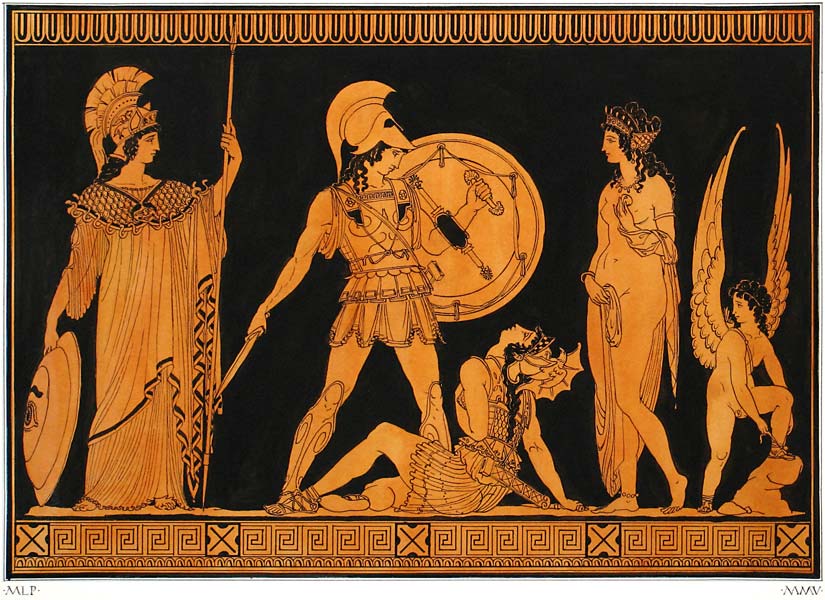When I teach my Intro Sociology course, I almost always give one or two lectures on ancient Sparta. I do this for a number of reasons. For one, I want to make sure my students know something about the ancient world. For another, the story of Sparta (which I mostly take from Plutarch’s “Life of Lycurgus”) is intrinsically interesting. But most of all I do this because Sparta is the perfect example of the principle that a well-organized society will have a paramount aim and that its elements will be arranged so as to achieve that aim.
Sparta’s great aim, of course, was military preparedness. Everything was arranged so that the male citizens of the city would be effective warriors. And not just effective warriors but an effective police force. For the citizens of Sparta (an aristocratic caste) always faced two potential enemies: external enemies, the other cities of the Greek world; and internal enemies, the slaves (Helots) and semi-slaves (Perioici) who were subordinate to the ruling caste and who, by their manual labor, enabled the ruling caste to devote itself entirely to the military life. Since the slaves and semi-slaves vastly outnumbered the citizens, Sparta’s military culture probably first developed as a way of keeping these subordinate classes under control.
Everything, not just the subordination of these two classes, was arranged to serve the city’s paramount aim of military preparedness. Boys began their military education at the age of seven. Men of military age, when they were not actually fighting, spent their days in gymnasiums keeping their bodies fit. Retired soldiers spent their time critiquing the efforts of the still-active soldiers. Spartan men dined, not with their wives, but with their fellow warriors. Girls exercised to keep physically fit, so that they might be ready when married to perform their great function in life, that is, to give birth to Spartan boys who would grow up to be warriors; or their secondary great function, to give birth to girls who would grow up to give birth to Spartan boys.
Even the sex life of Spartans was organized to serve the city’s paramount aim. The man-boy homosexual relationships that were found everywhere among Greek aristocrats were in Sparta part of a boy’s military education. And adultery was condoned as a patriotic attempt to provide the city with more boys who would grow up to be soldiers. (At this point I usually interrupt my lecture with a little joke. I tell my female students that if they should ever commit adultery, which I hope they won’t, and if they get caught by their husbands, they should defend themselves by saying, “I did it for America.”) Infanticide, which was widely practiced in the ancient world, was done in Sparta when it appeared that the newborn was unlikely to grow up to be a good soldier or a good mother of soldiers.
Needless to say, the moral values of Sparta promoted the paramount aim. Silver and gold, so loved by the people of commercial, un-military societies, were held in contempt. Houses and furniture were simple. There were two supreme virtues, courage and patriotism. While women did not fight, they encouraged their husbands and sons and brothers to be prepared to die for Sparta. Spartan mothers said to their sons as the sons went off to war, “Come home with your shield or on it.”
Is the United States a well-organized society? Does it have a single paramount aim to which all elements in society are directed? Well, we may not be quite as well organized as Sparta. We are too big for that, and here and there we have people whose private aims are discordant with our paramount aim. And what is this paramount aim? Making and spending money. We are above all a commercial society, as are all truly modern societies. The culture of modernity is a culture of commercial activity.
In the course of human history, there have been many societies in which commerce was no more than a minor thing, the major thing being religion or warfare. And some societies have had a double aim, religion plus warfare, neither secondary to the other. Medieval Europe was something like that: a society of warrior nobles and knights on the one hand and monks, nuns, bishops, and priests on the other.
But religion is not a leading public concern of any modern society. It is tolerated as no more than a private hobby, rather like stamp-collecting or masturbation. The military is more important, but its activity – warfare – is not an end in itself as it would be in a warrior society (e.g., the society portrayed in the Iliad). Modern war is a means towards making the world safe for commercial activity.
Our politics reflects the supremacy of commercial concerns. Candidates for president, for instance, don’t campaign on how to make America more virtuous or more religious. No, they campaign on how to make America more prosperous.
Our education system reflects this same supremacy. Do we, as Aristotle would have done, exalt the ideal of knowledge for the sake of knowledge? Of course not. What an antique absurdity. We tell kids that education is for the sake of getting a job and making money. Education has nothing to do with wisdom. Only quaint professors believe that, and not many of them.
How will this work out in the long run? An ancient wise man once said, “Man does not live by bread alone.” I think by “bread” he meant money and other material goods. A modern wise man once said, “Getting and spending, we lay waste our powers.” The Middle Ages spent centuries laying foundations of religion and morality. On these foundations modern centuries have built a superstructure of immense productivity and prosperity. Can this superstructure survive if we remove its foundation? Can our commercial civilization float in midair?















